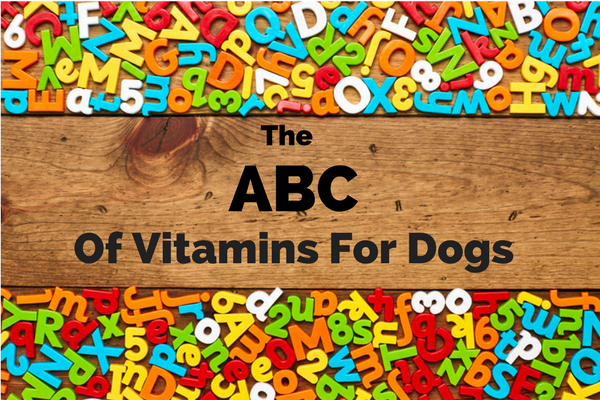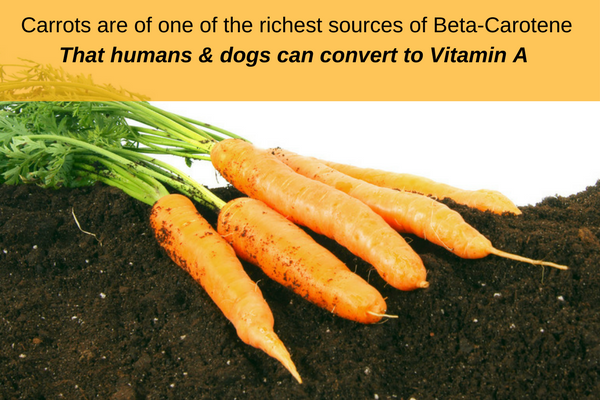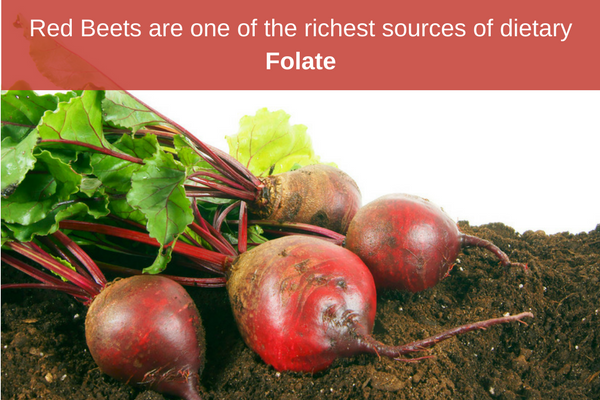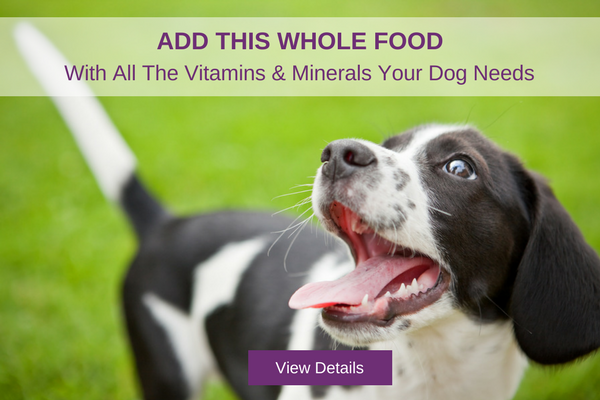
Vitamins and minerals are necessary for good health and vitality. When dogs are fed commercial dog food, especially kibble, which is highly processed food, they are not getting all the nutrients they need to thrive. Even when fed a home-prepared diet, whether it is raw or cooked, there can be gaps in nutrition.
The best way to provide our pets with added nutrition is by feeding, or adding whole foods to their diet that naturally contain good amounts of essential vitamins and minerals.
Nutrients from whole foods are by far more effective than synthetic vitamins. Whole foods contain a variety of different vitamins that act in synergy, contributing to your pet’s health.
We feel that every dog should have a good supply of vitamins and minerals listed below in their diet to promote optimal health and to help prevent disease.
Vitamin A
There is a reason why Vitamin A tops this list besides being in alphabetical order. Vitamin A provides too many health benefits to discuss in this article, and there will be an article coming on just the benefits of this one vitamin.
One of the primary health benefits is that Vitamin A maintains the integrity of the epithelium and mucosal tissues which are found in the lungs, trachea, skin, teeth, gums, eyeballs, bladder, and top-to-bottom digestive tract. These tissues, when healthy and intact, serve as the first line of defense for the immune system, providing a protective barrier that disease-causing microorganisms cannot penetrate.
What this means for your dogs, is that vitamin A is essential for the health of their skin, eyes, teeth, gums and vital organs including the all-important digestive tract.
- Stimulates immune system activities
- Increases the response of antibodies to antigens
- Helps fight off viral infections
- Supports healthy skin
- Promotes normal cell growth and development
- Plays a role in bone metabolism
- Essential for the hormonal system and reproductive processes
- Enhances the function of white blood cells
- Preserves and improves eyesight
- Act as antioxidant (especially beta-carotene)
Vegetables contain a precursor of vitamin A called beta-carotene that gets converted to vitamin A in the intestinal mucous membrane as needed.

B Vitamins
The B complex vitamins are important for the health of the nervous system as well as the proper metabolism of fats, carbohydrates and proteins. They are a family of vitamins that closely work together. When there is a deficiency of any of the B complex vitamins, there usually is a shortage of another B vitamin as well. Therefore it is a good idea to supplement with several, if not all, of the factors of the complex.
B1 Thiamin
- Maintains energy supplies
- Coordinates the activity of nerves and muscles
- Supports proper heart function
B2 Riboflavin
- Helps protect cells from oxygen damage
- Supports cellular energy production
- Helps maintain the supply of other B vitamins
B3 Niacin
- Stabilizes blood sugar
- Helps the body process fats
- Supports genetic processes in the cells
B5 Pantothenic Acid
- Helps turn carbohydrates and fats into usable energy
- Assures adequate production of healthy fats in the cells
- Improves the ability to respond to stress by supporting the adrenal glands
B6 Pyridoxine
- Supports nervous system health
- Promotes proper breakdown of sugars and starches
- Helps maintain hormonal balance
- Assists in the elimination of toxic substances through the liver
B9 Folic Acid
- Supports cell production, especially skin cells
- Supports red blood cell production and helps prevent anemia
- Allows nerves to function properly

Vitamin C
Like most animals, dogs produce their own vitamin C, but they are relatively poor producers of this nutrient, and stress can quickly burn up the small amounts they make. Without enough of this critical nutrient, our pets will become ill and can even die.
- Plays vital roles in immunity
- Helps protect from free radical damage
- Important for the growth and maintenance of connective tissue
- Helps with combating stress
- Neutralizes toxins
- Helps regenerate vitamin E supplies
- Helps improve iron absorption
Copper
Copper is an essential trace mineral that is vitally important to health because it is involved in several important enzymatic reactions in the body.
- Helps reduce tissue damage caused by free-radicals
- Maintains the health of bones and connective tissues
- Keeps the thyroid gland functioning normally
- Helps the body utilize iron
Iron
Everybody needs iron, and so do dogs.
- Enhances oxygen distribution in the body
- Keeps the immune system healthy
- Helps the body produce energy
Magnesium
Just like in humans, magnesium helps the dog’s body absorb calcium, vitamins C, E, and B complex vitamins.
- Relaxes nerves and muscles
- Helps build and strengthen bones
- Keeps the blood circulating smoothly
Manganese
Manganese is a trace mineral that activates the enzymes responsible for the utilization of several key nutrients including Biotin, Vitamin B1, Vitamin C and choline. It helps synthesize fatty acids and cholesterol, and facilitates protein and carbohydrate metabolism.
- Protects cells from free radical damage
- Helps keep bones strong and healthy
- Helps maintain normal blood sugar levels
- Promotes optimal function of the thyroid gland
- Helps maintain the health of the nerves
Phosphorus
Phosphorus is an essential mineral involved in many cellular activities that the skeletal structure and vital organs rely on for proper functioning.
- Helps maintain strong bones
- Important for metabolism and nutrient utilization
- Helps balance hormones
- Balances the body’s pH level and improves digestion
- Helps boost energy levels
Potassium
Potassium is a mineral which plays an important role in health, and is especially important in the activity of muscles and nerves.
- Helps muscles and nerves function properly
- Maintains the proper electrolyte and acid-base balance in the body
- Helps maintain calcium levels




Leave a Reply